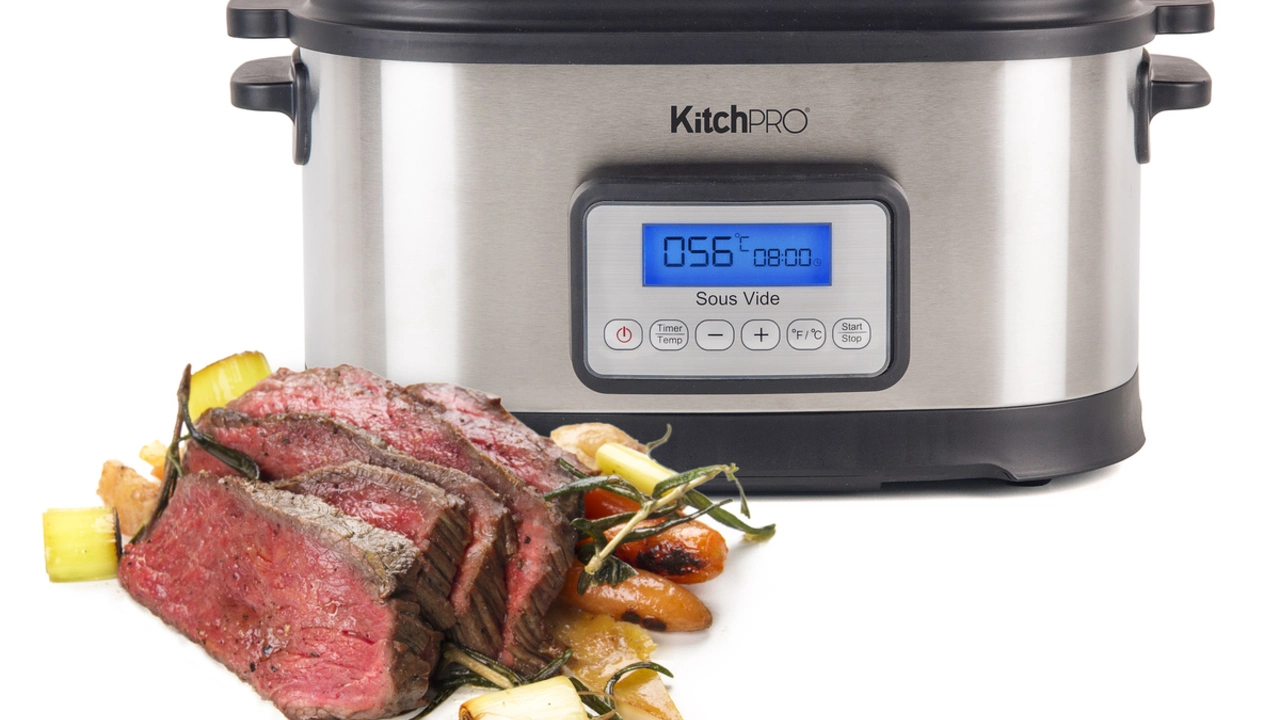Understanding the Basics of Sous Vide Cooking
If you're a food enthusiast like me, you've probably heard about sous vide cooking. But if you haven't, don't worry, I've got you covered. Sous vide is a French term that translates to "under vacuum." It's a cooking method where food is placed in a bag, vacuum-sealed, and then submerged in a water bath at a precise temperature. This low and slow cooking technique allows food to cook evenly, retaining its juices and enhancing its flavors. It's a favorite among many professional chefs and has become increasingly popular for home cooking.
The beauty of sous vide cooking is its precision. You can set the exact temperature and time you need, so there's little room for error. This means you can get restaurant-quality results at home. But what if you're not around to start the cooking process? This brings us to a common question: can you cook sous vide with a delayed start? Let's explore this further.
The Concept of Delayed Start in Sous Vide Cooking
As a busy person, I understand the appeal of a delayed start feature in a cooking method. It's like having a personal chef who starts cooking for you while you're out. For those who may not know, a delayed start feature allows you to set your sous vide machine to start cooking at a later time. So, in theory, you could prepare your food, set the timer, and go about your day. Your meal would then start cooking at the specified time and be ready when you get home. Sounds perfect, right?
However, this isn't as straightforward as it may seem. While the idea of a delayed start sounds convenient, it's important to consider the safety implications. To understand why, we need to delve a little deeper into food safety.
Understanding the Importance of Food Safety
When it comes to cooking, food safety is paramount. One of the main concerns with a delayed start in sous vide cooking is the risk of foodborne illnesses. According to the USDA, perishable foods left at room temperature for more than two hours can enter the "danger zone" (between 40°F and 140°F), a temperature range where bacteria can multiply rapidly. If your food is in this danger zone for too long before the sous vide cooking process starts, you risk getting sick.
Additionally, even if your food doesn't make you ill, it could still affect its quality. Food that sits at room temperature for too long can start to deteriorate, affecting its taste, texture, and overall quality. So, while the idea of coming home to a freshly cooked meal is appealing, it's vital to ensure it doesn't compromise your health or your culinary experience.
The Verdict: Can You Cook Sous Vide with a Delayed Start?
After considering the above, it's clear that while a delayed start feature might seem convenient, it's not advisable due to food safety concerns. Leaving raw food at room temperature for an extended period can expose it to harmful bacteria, putting you at risk of foodborne illnesses.
Some modern sous vide machines do offer a delayed start feature. But remember, just because a feature exists doesn't mean it should always be used. As a food enthusiast and blogger, my advice would be to prioritize safety and quality over convenience. After all, the whole point of cooking sous vide is to enjoy beautifully cooked, high-quality food.
Safe Alternatives to Delayed Start Sous Vide Cooking
So, if a delayed start isn't recommended for sous vide cooking, what are the alternatives? One method is to cook your food sous vide in advance, then chill it in an ice bath and refrigerate. When you're ready to eat, you can simply reheat your food in the sous vide bath to the desired serving temperature. This method ensures your food is safe and retains its sous vide quality.
Another option is to use a smart sous vide machine that you can control remotely via an app. This way, you can start the cooking process when you're leaving work, for example, and have your meal ready by the time you get home. However, remember to keep your food refrigerated until it's time to start cooking.
Ultimately, sous vide cooking is about precision, quality, and safety. While the idea of a delayed start might be appealing, it's important to consider the potential risks. Happy cooking!
